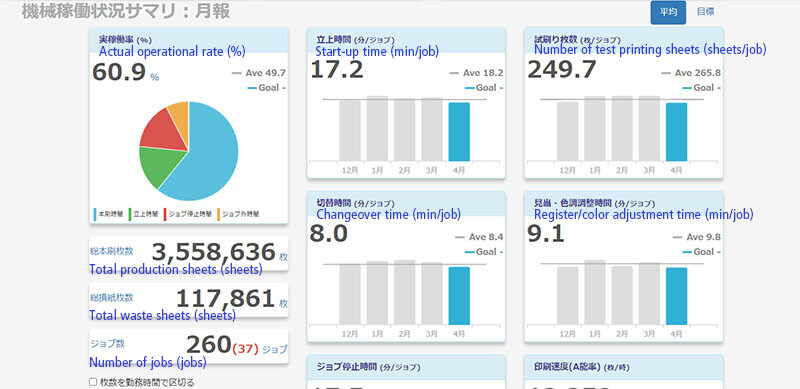 Futaba Printing Co., Ltd. and group company Kyowa Printing Co., Ltd., with their core business in commercial printing, was challenged with how to efficiently operate a total of six printing presses in two remote locations. Complex and diverse printing processes were being managed and operated using analog methods such as output schedules on paper and telephone calls, which was a major productivity bottleneck.
Futaba Printing Co., Ltd. and group company Kyowa Printing Co., Ltd., with their core business in commercial printing, was challenged with how to efficiently operate a total of six printing presses in two remote locations. Complex and diverse printing processes were being managed and operated using analog methods such as output schedules on paper and telephone calls, which was a major productivity bottleneck.
To meet this challenge, the company introduced KP-Connect Pro to unify the workflow of the two companies and digitalize all production management work that was previously done in Excel and on paper. KP-Connect Pro's scheduler allows information entered once to be instantly distributed throughout the printing process. This has reduced the clerical work for inputting print job and schedule information from three hours to one hour. In addition, the status of the printing press, as well as final printing data, paper preparation, and printing plates, can be easily checked in real time, making it easier to prioritize jobs and make efficient schedules. Twenty to thirty phone calls every day to check on job progress were reduced to zero. As a result, the time required to get the job on press has been greatly reduced and the operational rate has increased from 30 percent to more than 50 percent. This remarkable productivity increase is the same as having one more press in addition to the two current printing presses. The person in charge of process control can now devote more time to their original duties, such as analyzing the operational rate and managing the plant and employees. In the future, the companies plan to use KP-Connect Pro to manage all operations related to printing.
Productivity bottlenecks within printing companies are partly due to the problems of specific equipment such as presses and finishing machines. However, a larger problem is the use of analog methods for production process management, making digital transformation very significant.
www.komori.com





























































































